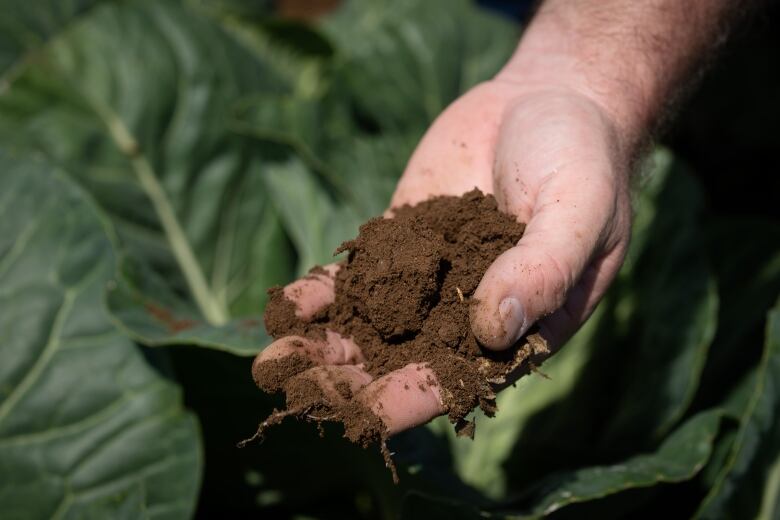Food security concerns raised over fertile Surrey farmland at risk of industrial development
Farmers say selling the land would undermine self-sustaining food supply chains

There's a piece of land in Surrey that some call the most fertile farmland in British Columbia, if not Western Canada but there's a good chance it could wind up beingsold to developers.
The Campbell Heights property, which sits at192nd Street near 36th Avenue, is owned by the federal government and leased to farmers. It's not part of B.C.'sAgriculturalLand Reserve, though many say that's a historical oversight.
"Bar none, it's the best. It produces the earliest crops every year, first potatoes, first carrots, first cabbage. It's just very unique," saidWesHeppell.
Heppell and his family, spanning three generations, have grown crops on this particular farm since the 1970s.They say it produces between 30 and 50 million servings of fresh vegetables each year enough for one serving on every Metro Vancouverite's plate for two to three weeks.

They hope the 220-acre parcel can be moved into the ALR or swapped with other, less fertile pieces.
"We need to protect our food supply."
Reducing reliance on California and Mexico
The acreage is surrounded by warehouses erected over the years as farmland in the area sold for hundreds of millions development that is part of the City of Surrey's Official Community Plan (OCP).
Murray Driediger with B.C. Fresh, the largest marketer of field and storage crops,knows and appreciates the pressure for moreindustrial land but says losing this amount of crop production would be detrimental to the province's own food security, given it helps displace high-cost imports from the U.S. each year.
He points to climate change threatening crops andthe supply chain disruptionsof the last two years.
"It's a wake-up call for all of us," said Driediger. "When the supply chain [is] broken, countries tend to pull their exports in to take care of themselves. If we don't take care of farmland like this, nobody else is going to help us."

'Unique microclimate ...resilient to climate change'
For the months of May, June and July, at least 25 per centof B.C.'s potatoes, carrots, cabbage and squash come from this one parcel alone.
While some may scoff at the claim that theland is so fertile it must be protected, even though it's not in the ALR the explanation, according to stakeholders, is simple.
The land is exceptionally sandy and sits on a hill which means it's more resilient to flooding. It's planted and harvested when other fields across the province are too wet. It also has a warm microclimate which is responsible for the production of some of the earliest crops in Western Canada.
All of this allows the farmers to practise regenerative agriculture, a key recommendation in climate change resiliency.

Tom Baumann, an associate professor of agriculture at the University of the Fraser Valley, says conflicts between agriculture, roadways and residential and industrial uses are nothing new to the area because there is no free space.
"It's up to all of us and our leadership to consider the benefits of each sector.Are we willing to permanently give up some of the best land in Canada for agriculture? Are we willing to stop harvesting local foods and rely on imports?"
In the past year, the average price per acre sold in Campbell Heights was $3.16 million, but industry professionals estimate that's gone up significantly.
The federal government says it declared the property as surplus in August of 2016. The Department of Innovation, Science and Economic Development is in the process of divesting it through Public Services and Procurement Canada.












_(720p).jpg)


 OFFICIAL HD MUSIC VIDEO.jpg)
.jpg)



























































































